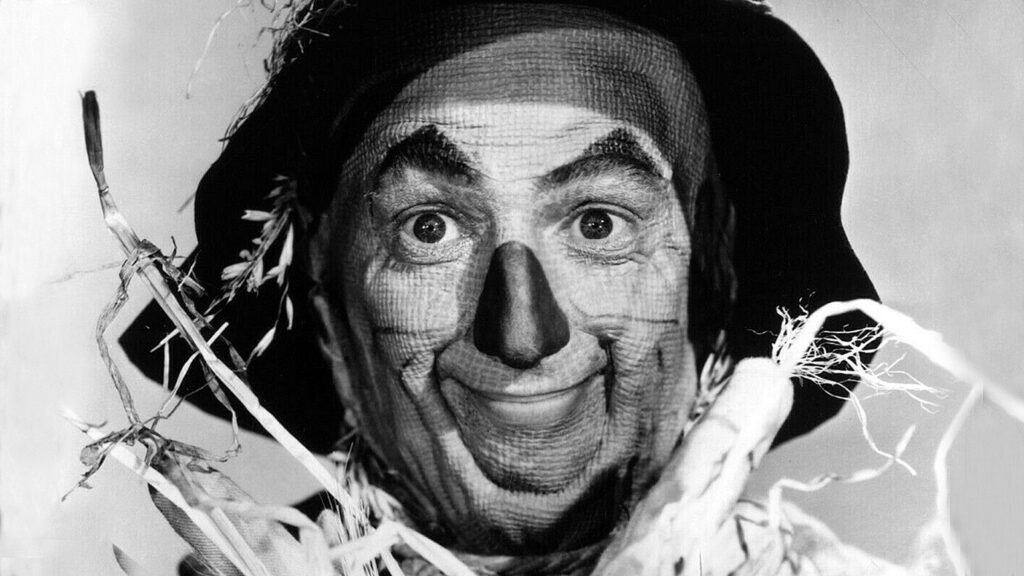When I was a little boy growing up in the old Irish section of Boston, it never occurred to me that some day I would find myself skipping down a yellow-brick road with a Cowardly Lion, a Tin Woodman and a little girl, searching for a brain, for courage, for a heart and a home. Let me tell you how it came about.
There was never much money in our family; my father worked at a variety of jobs. And Mother was in very poor health, but she took time to scrub our souls as well as our faces. She lifted our eyes above the grimy streets and the shrieking elevated trains to beautiful things, by taking us to the ballet, the Boston symphony, art museums, and, most of all, by giving us books.

“This book has a marvelous philosophy, Raymond,” Mother said. “It tells how we all need wisdom, love, courage and a home. The trouble is,” she added softly, “God has given each of us these gifts, but we don’t believe it. And so we roam the world searching for them when we have them within us all the time. Remember what the Bible says: ‘The kingdom of God is within you.’ [Luke 17:21] Keep those words with you always, Raymond.”
I wasn’t quite sure then just what Mother meant. But I did love the colorful Oz books, especially that Scarecrow. He seemed such a genial character. I always imagined him dancing. And I loved to dance myself. When I got my first job in a bank. I managed to go to ballet school on the side, paying for my lessons by acting as bookkeeper for the director.
But then my mother died, and my whole world seemed to collapse around me. Still in my teens, I had no real home anymore. On top of this, I lost my job.
I remember trudging along one cold, gray afternoon wondering what lay ahead. I came finally to the cathedral I had attended ever since I was christened there. The church was empty, and for a long time I knelt there in the quiet, praying.
READ MORE: WALTER BRENNAN ON PERSEVERANCE
Light flickered from the candles on the altar, and I thought of Mother and the home we once had. And I remembered her words about God’s true gifts being within us. What were mine? Certainly not any real talent for business. But then suddenly words from one of the Psalms came to me as if written in letters of fire: “Let them praise His name with dancing, making melody to him…” (Psalm 149:3, RSV) And it seemed to me, as I looked deep inside myself, that this was the road God wanted me to travel.
Not long afterward I joined a traveling repertory company, selling vacuum cleaners on the side to earn enough money to buy my costumes. In a few years I had put my own act together, playing four or five shows a day.
Rewards came, though not financial ones. I learned that if I gave love in my acting and dancing it was returned in kind from those on the other side of the footlights. And I believe God often led me to the right place at the right time, as when I met Gwen Rickard in 1926. She had come from Montana to Los Angeles’ Orpheum Theater, where I was appearing, to sell some songs. We were married three years later, and she has been my inspiration ever since.
Then came roles on Broadway, and in the mid-1930s I began making movies. In 1937 I was under contract to MGM when I heard they were going to produce The Wizard of Oz.
My heart leaped. But the casting director said he wanted me to play the Tin Woodman.
“Buddy Ebsen will play the Scarecrow,” he said.
“But I’m not a rigid tin performer,” I protested. “I’m fluid, I’m a dancer.”
“No, we think you should be the Tin Man.”
My heart sank. MGM had several ways of enforcing discipline; if you got too rebellious they could suspend you without pay. So strong was the feeling within me, however, that I should play the Scarecrow that I couldn’t give up. I fought the hardest fight in my life. Eventually, Buddy Ebsen said he’d just as soon play the Tin Woodman. Later that part was taken by Jack Haley. And I became the Scarecrow.
READ MORE: SHIRLEY TEMPLE’S HAPPIEST MOMENT
The making of The Wizard was expensive and chaotic. Ten scriptwriters and four directors worked in relays on it. But despite the harried atmosphere with such back-and-forthing as “Why does she sing ‘Over the Rainbow’ in a barnyard? Take that song out of the picture.” the filming was completed in 10 months and premiered in October 1939.
Reviews were mixed, with some important critics saying things like “a stinkeroo,” “displays no trace of imagination, good taste or ingenuity” and “weighs like a pound of fruitcake soaking wet.”
But that didn’t bother me. No matter what reviewers said, I felt it was a good picture, the kind my mother would have approved of. Later, many of the reviewers had to eat their words. During the war years that followed the film’s opening, the song “Over the Rainbow” expressed a nation’s longing for future peace. And “We’re Off to See the Wizard” became the theme of RAF pilots flying into battle.
The rest of the story of the yellow-brick road is written in the hearts of all those who have seen the film. Now an American institution, it has become one of the most enduring and best-loved movies ever made and is shown on television every year. For me it’s always a reminder of the wisdom from the Bible that my mother pointed out to me: The kingdom of God is indeed inside all of us. if we’ll only seek and find it there.
READ MORE: 13 THINGS YOU MIGHT NOT KNOW ABOUT ‘THE WIZARD OF OZ’
For more inspiring stories, subscribe to Guideposts magazine.





